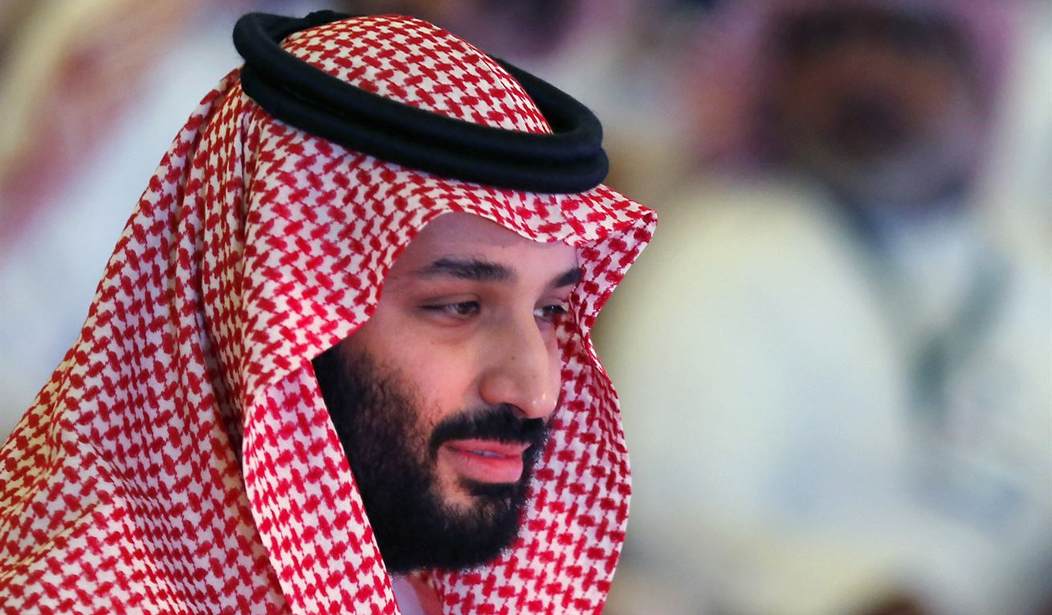Saudi Arabia can hardly be classified as a totally reliable ally of the United States, particularly given lingering questions about the extent of its involvement at the highest levels in the 9/11 jihad attacks. However, it is a notable bulwark against Iran in the region, and so many on both sides of the aisle see the utility of the American alliance with the kingdom. That group, however, apparently does not include Old Joe Biden’s handlers. Over the last few weeks, they have quietly removed an advanced missile defense system from Saudi Arabia, despite the fact that the Saudis are suffering ongoing air attacks from the Houthis in Yemen, who are clients and proxies of the Islamic Republic of Iran.
It’s hard to see this move anything but yet another attempt to appease the mullahs in Tehran, who so far have not been moved by Biden’s handlers’ many overtures to soften their harsh anti-American rhetoric. Pentagon spinmeister John Kirby, however, said nothing about the Islamic Republic as he admitted to “the redeployment of certain air defense assets”; instead, he insisted that the American commitment to its allies in the Middle East remained “broad and deep.”
Kirby added: “The Defense Department continues to maintain tens of thousands of forces and a robust force posture in the Middle East representing some of our most advanced air power and maritime capabilities, in support of U.S. national interests and our regional partnerships.” Right. Now what’s this about leaving Saudi Arabia without a missile defense system in the face of ongoing attacks from Iranian proxies in Yemen? For some reason, Kirby didn’t address that.
The Saudis put a brave face on it all as well. The Saudi Defense Ministry issued a statement hailing its relationship with the U.S. as “strong, longstanding and historic” and assuring the world that even without American help, the Saudi military “is capable of defending its lands, seas and airspace, and protecting its people. The redeployment of some defense capabilities of the friendly United States of America from the region is carried out through common understanding and realignment of defense strategies as an attribute of operational deployment and disposition.”
Righto. Unfortunately for the Saudi Defense Ministry, however, the former director of Saudi Arabia’s intelligence services, Prince Turki al-Faisal, was less sanguine about the withdrawal of the missile defense system. “I think we need to be reassured about American commitment,” he said. “That looks like, for example, not withdrawing Patriot missiles from Saudi Arabia at a time when Saudi Arabia is the victim of missile attacks and drone attacks — not just from Yemen, but from Iran.”
That the Saudis need the system was underscored recently when, according to the Associated Press, “A bomb-laden drone on Tuesday [August 31] crashed into an airport in southwestern Saudi Arabia, wounding eight people and damaging a civilian plane, Saudi state television reported, the latest assault on the kingdom amid its grinding war in neighboring Yemen.” That was just the latest of many such attacks.
Yet amid all this, in yet another ominous sign for the Saudi/American alliance, Biden’s Defense Secretary Lloyd Austin, “on a tour of the Mideast in recent days, had been slated to go to Saudi Arabia but the trip was canceled due to what American officials referred to as scheduling problems. Saudi Arabia declined to discuss why Austin’s trip didn’t happen after the withdrawal of the missile defenses.”
Related: U.S. Denies Iran Claim of Prisoner Swap for Resumption of Nuke Talks as ‘Outrageous’
In the context of all this, it is important to remember what Iranian President Hassan Rouhani said on November 5, 2020: that “the next U.S. administration will surrender to the Iranian nation.” This wasn’t just tough talk. In light of Biden’s handlers’ apparent willingness to give the mullahs all they want and more, it was a sober assessment of the geopolitical situation.
Yet there is no actual indication that the mullahs have changed their stance since November 2, 2015, when a commanding majority of the Majlis, 192 of its 290 members, agreed to a statement saying that “Death to America,” which continues to be chanted at every Friday prayer in Iranian mosques as well as at anti-American protests, was not just a slogan: it had “turned into the symbol of the Islamic Republic and all struggling nations.”
So while the mullahs chant “Death to America,” Biden’s handlers weaken an American ally that is directly threatened by Iran, and under regular bombardment from one of Iran’s client groups. Will this turn the hearts of the mullahs toward Washington in love, and bring about peace in the world? The deluded denizens of the Defense Department might think so. But back in the real world, things don’t work that way.










Join the conversation as a VIP Member